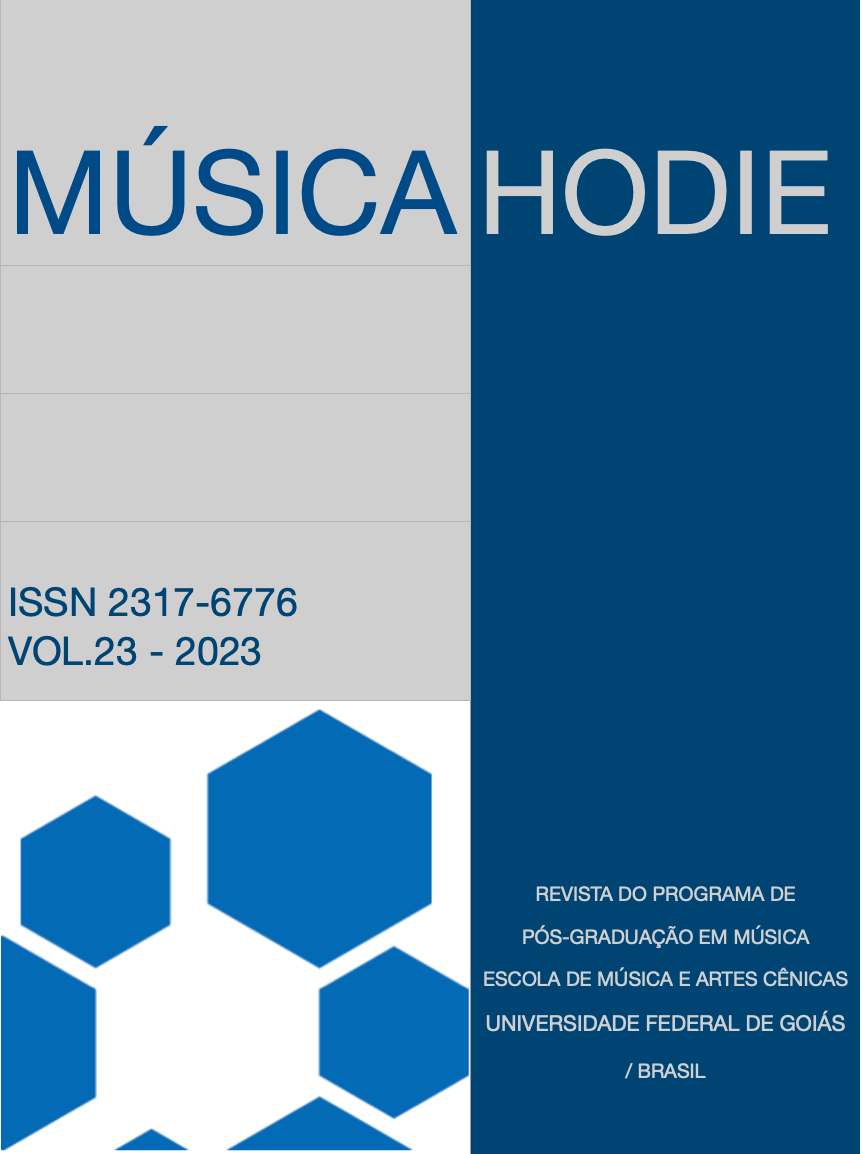Universalism, or the fabrication of concert music
A Brazilian history of cultural appropriation, political propaganda, and inequality
DOI:
https://doi.org/10.5216/mh.v23.72129Palabras clave:
Musical universalism, Osesp, Brazilian music, social inequality, Brazilian politicsResumen
The idea of a ‘universal music,’ which develops alongside the supposed hegemony of European classical music, has historical roots that have been expressed as disciplinary content since at least the Enlightenment. However, its current relevance is shown in processes of symbolic appropriation, which we analyze in the contemporary Brazilian scenario, where the dissemination of universalism as an unquestionable paradigm of cultural superiority guides the relationship with musical discipline and is shaped by the context of social, political, and economic fragility, which we will analyze in the case of the São Paulo Symphony Orchestra, concluding, finally, the difficulty of music in constituting itself as an epistemic object in this context.















